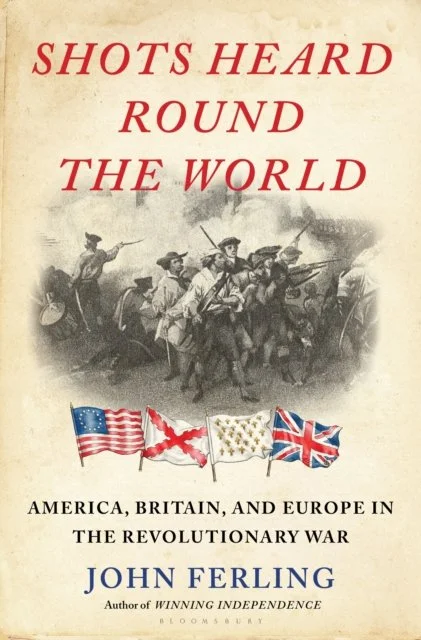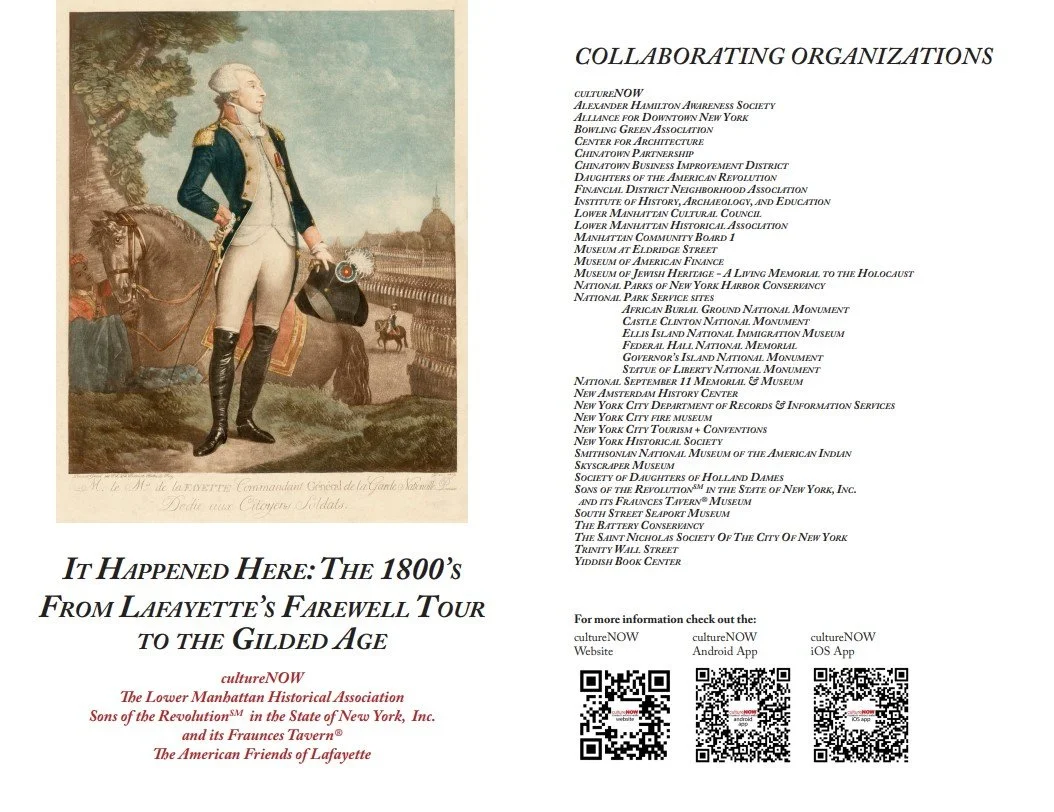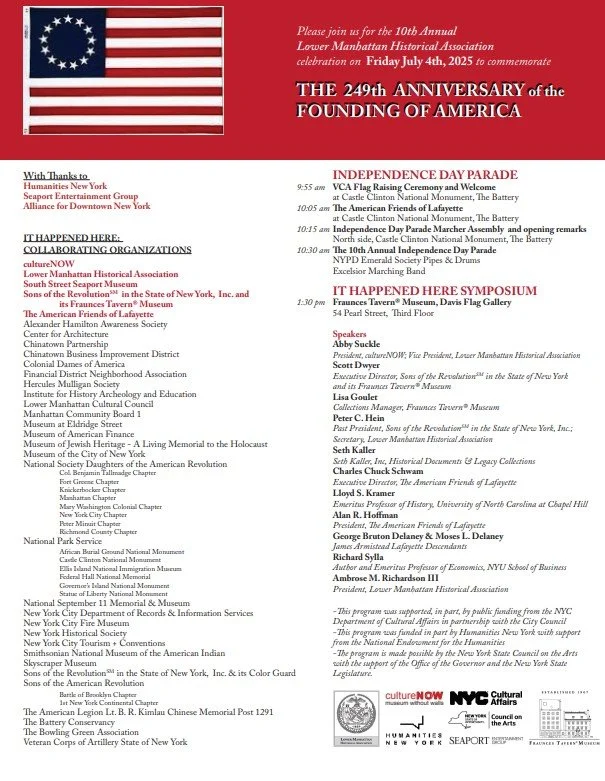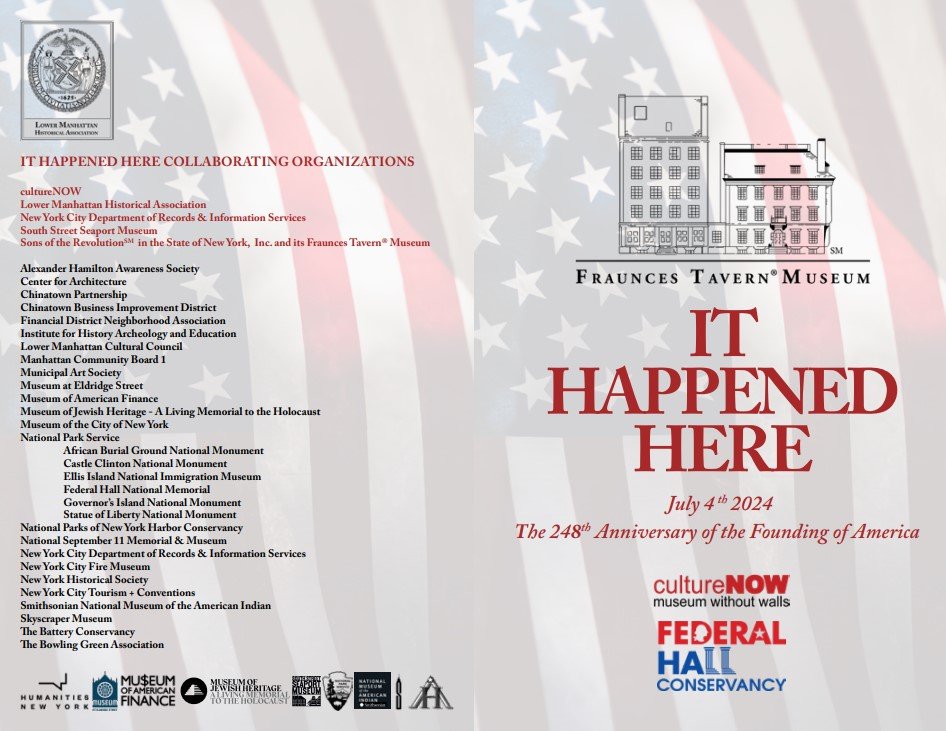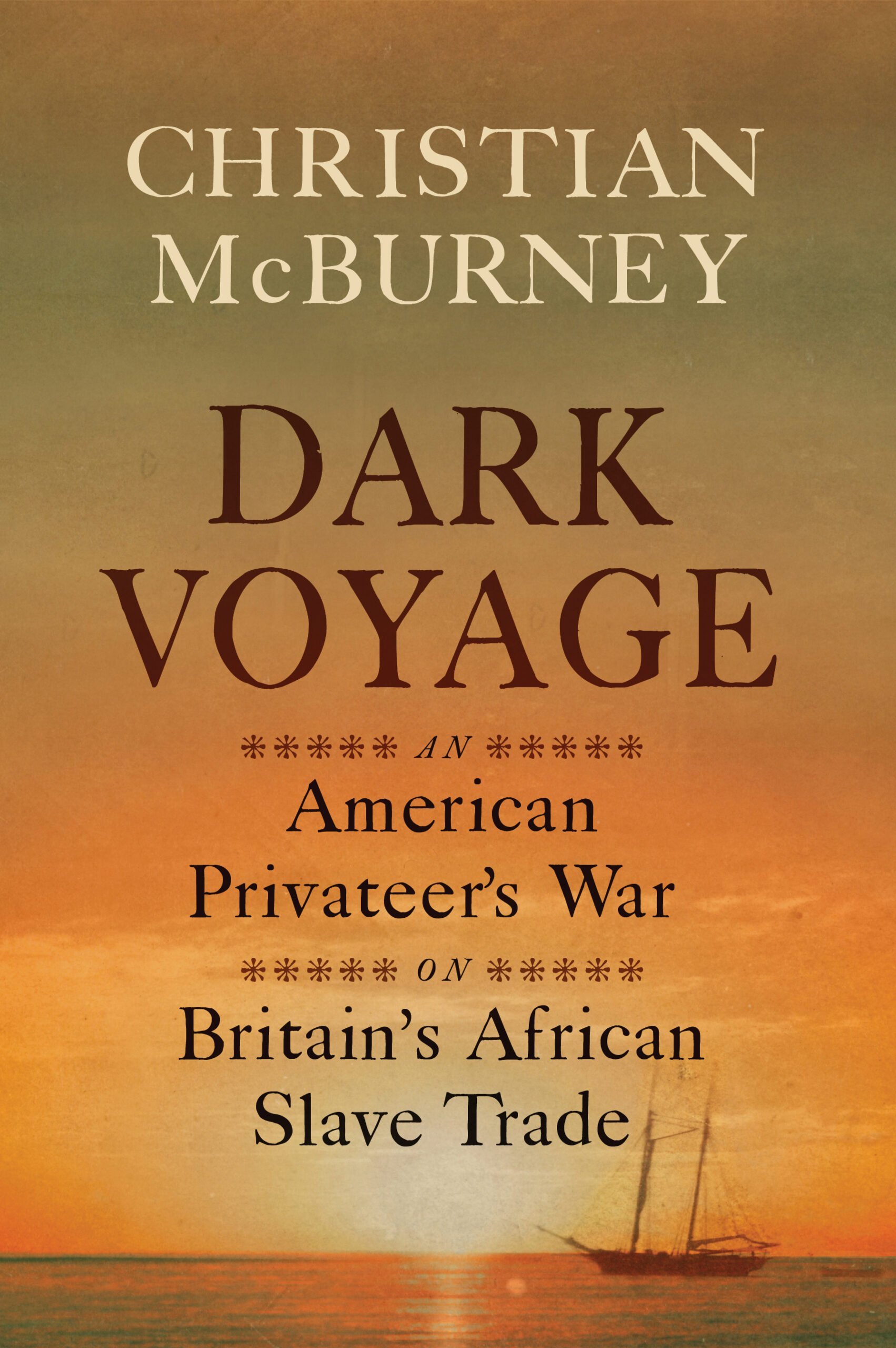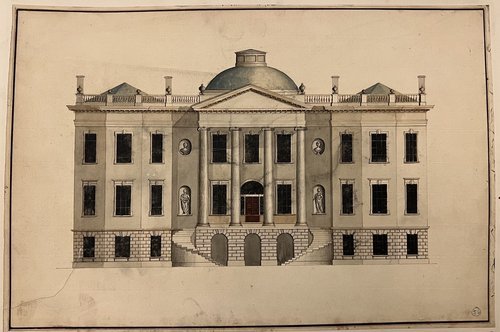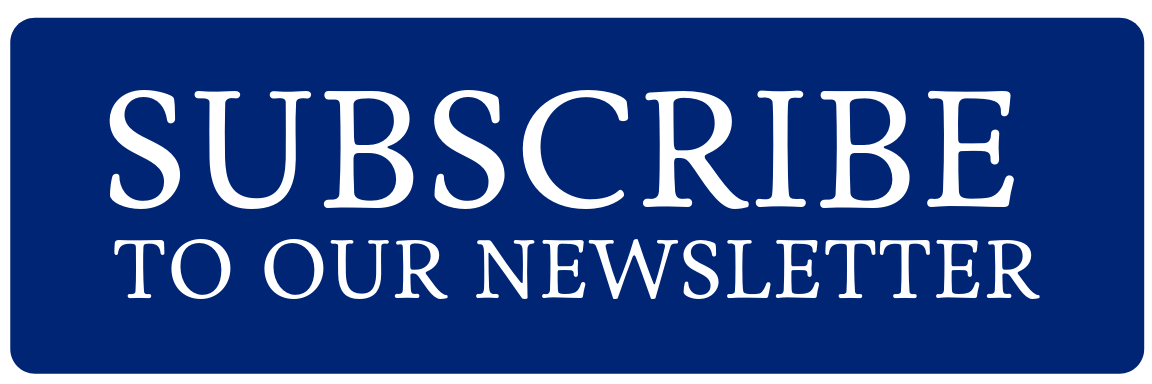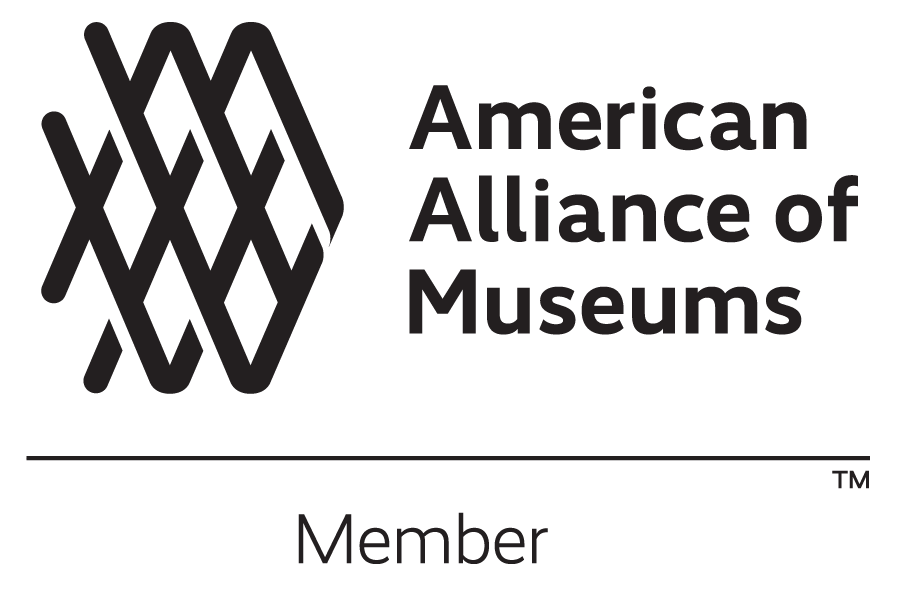~ Download Evening Lectures on iTunes and listen on the go! ~
Find us at "Fraunces Tavern Museum."
December 8, 2025
How can the American Revolution be understood as a global war? How were the war’s effects felt at home and abroad? In this virtual interview conversation with John Ferling, author of Shots Heard Round the World: America, Britain, and Europe in the Revolutionary War, we discuss the subjects of Ferling’s most recent book and the broader scope of the Revolutionary War, followed by an audience Q&A.
Following a 40-year teaching career, John Ferling retired from teaching and is Professor Emeritus of History at the University of West Georgia. He wrote and published throughout his career and is the author of 16 books, mostly dealing with the American Revolution and the War of Independence.
September 23, 2025
Join author Michael Cecere for a lecture in our special 250th series. This talk covers important events in 1775 across all of the thirteen colonies, with a special emphasis on the Middle Colonies and New York.
August 11, 2025
Spies, espionage, and intelligence operations during the American Revolution have long captured the public's imagination, thanks in part to popular books and television series. While these dramatizations highlight a captivating aspect of the Revolutionary War, they often blur the line between fact and fiction. Join historian Charles Dewey to uncover the real stories of the men and women—soldiers and civilians alike—who risked or sacrificed their lives for the cause.
July 5, 2025
It is a truism that Lower Manhattan has been America's town square since its founding in 1524, even though its history is much deeper. Virtually every aspect of global, local and national significance can be in some manner traced to this Downtown stage. Some have been forgotten and some have been transformative in our culture and many have fallen between. This is both a project in urban archaeology and a way of describing the city over time. It Happened Here captures the multiple and overlapping stories that are woven throughout our city's life. It embraces America's history as the museums, monuments and memorials that dot its streetscape do. It highlights many of the concerns, events, and places that the people who lived, fought, worked and visited here thought were important at their moment in time.
On July 5, 2025, Fraunces Tavern Museum hosted an afternoon of special programming exploring 19th century New York. Hear from speakers* on topics including the Marquis de Lafayette's return to America early in the century, immigration to New York, and the Gilded Age as we join cultureNOW's IT HAPPENED HERE program to celebrate the 400th Anniversary of the founding of New York.
July 4, 2025
It is a truism that Lower Manhattan has been America's town square since its founding in 1524, even though its history is much deeper. Virtually every aspect of global, local and national significance can be in some manner traced to this Downtown stage. Some have been forgotten and some have been transformative in our culture and many have fallen between. This is both a project in urban archaeology and a way of describing the city over time. It Happened Here captures the multiple and overlapping stories that are woven throughout our city's life. It embraces America's history as the museums, monuments and memorials that dot its streetscape do. It highlights many of the concerns, events, and places that the people who lived, fought, worked and visited here thought were important at their moment in time.
On July 4, 2025, Fraunces Tavern Museum hosted an afternoon of special programming exploring 18th century New York. Hear from speakers* on topics including the Museum's special 250th exhibition, Path to Liberty: The Emergence of a Nation, as we join cultureNOW's IT HAPPENED HERE program to celebrate the 400th Anniversary of the founding of New York.
June 23, 2025
On June 23, Sons of the Revolution in the State of New York, Inc. commemorated the 250th anniversary of the Battle of Bunker Hill with a reception and lecture by Dr. Samuel A. Forman, author of Dr. Joseph Warren: The Boston Tea Party, Bunker Hill, and the Birth of American Liberty.
At the 250th anniversary of the outbreak of the Revolutionary War, we recall the Battle of Bunker Hill, whose carnage and sacrifice set the stage for eight long years of war. What began as a dispute to assert British Constitutional rights within colonial North America, with New England often on the point of controversy, would eventually morph into a new country, with new forms of representative and accountable government.
Joseph Warren was an outstanding personality from the early and formative Revolutionary period. A physician, Mason, editorial writer and high Son of Liberty, Warren espoused an aspirational view of what America could and should be. Warren entered the national spotlight as more visible Patriot leaders left for the Continental Congresses in 1774 and 1775. From writing the stirring Suffolk Resolves, to delivering riveting speeches, dispatching Paul Revere on that Midnight Ride, leading the Massachusetts Provincial Congress, and coordinating the Siege of Boston in its earliest phase, Joseph Warren was often at the forefront. When it had become apparent that the dispute with England would be decided by force of arms, Warren became a militia organizer. Declining a medical role for that of a soldier, he fought valiantly at Bunker Hill.
By 1776, following the 9-month Siege of Boston, the war would come to New York with a vengeance and with the outcome far from certain.
May 5, 2025
Join author Kostya Kennedy for this lecture exploring the dramatic events of April 18 and 19, 1775—the night of Paul Revere’s famous ride. With new insights from archives, family documents, and contemporary accounts, discover how the legendary ride is far more complex than it is usually portrayed.
March 17, 2025
More than 3 years passed between the last battle in the North and the British surrender at Yorktown. In this lecture, Alan Pell Crawford tells what actually happened in those 3 too-little known years that forced the British to lose the war–and enabled America to win it.
March 3, 2025
George Washington and Samuel Fraunces developed skills of risk-taking, judgement, and leadership through their entrepreneurial ventures that would later advantage them and the new nation when they chose to join the cause of American patriots. In this lecture, John Berlau spotlights the successes and struggles of both men in their respective business careers that intertwined at important points in American history.
January 27, 2025
On Monday, January 27, 2025, SRNY commemorated the birthday of Frederick Samuel Tallmadge, the second President of the Sons of the Revolution℠ in the State of New York, Inc., whose generosity enabled the Society to acquire Fraunces Tavern in 1904.
Our featured speaker was Richard Brookhiser, author of Glorious Lessons: John Trumbull, Painter of the American Revolution. This engaging book tells the life-story of John Trumbull, and also explains the significance of Trumbull’s celebrated Revolutionary War paintings, which reflected Trumbull’s personal experience as aide to George Washington and to Horatio Gates.
Richard Brookhiser is a celebrated journalist and author who has written a series of biographies and other books on American founders and other leading figures in American history, including Alexander Hamilton, Governor Morris, George Washington, John Marshall, James Madison, Abraham Lincoln and the Adams family dynasty.
December 9, 2024
Clement Clarke Moore is known the world over for his masterpiece of juvenile fiction, Twas the Night Before Christmas — less well-known is Moore's own life story and the involvement of his parents and grandparents during the revolutionary period. Join author and historian Pamela McColl for a festive presentation on the life and times of Clement Clarke Moore (New York, NY 1779-1863) and the Moore and Clarke families' involvement in the Revolutionary War.
November 11, 2024
In this lecture, join author, photographer, and licensed NYC sightseeing guide Tommy Silk as he discusses how he decided on the 120 buildings that constitute the hidden landmarks of the five boroughs. Discover the histories of the city's remaining buildings from the 18th century and earlier, including Fraunces Tavern itself, and learn why so few of these structures remain today.
October 23, 2024
Remarks and Lecture from special guests in the Bissell Room of Fraunces Tavern® for Fraunces Tavern® Museum’s expanded permanent exhibition The Birch Trials at Fraunces Tavern, October 23, 2024. Speakers include Elizabeth Cooke-Sumbu and Andrea Davis, descendants of individuals listed in the Book of Negroes, reviewed and compiled at Fraunces Tavern in 1783. Andrea Davis, Executive Director of the Black Loyalist Heritage Centre in Shelburne, Nova Scotia, Canada, presents a lecture, “The Black Loyalists: Their Journey, Arrival & Life in Nova Scotia”.*
October 23, 2024
Remarks from the preview reception for Fraunces Tavern® Museum’s expanded permanent exhibition The Birch Trials at Fraunces Tavern, October 23, 2024, in the Kathryn and Shelby Cullom Davis Educational Center for American History. Speakers include Peter C. Hein, President, Sons of the Revolution℠ in the State of New York, Inc. (SRNY); Craig H. Weaver, SRNY Museum Committee Co-Chair; Scott M. Dwyer, Executive Director, SRNY and its Fraunces Tavern® Museum; Melanie Hopkins, Deputy Consul General for the United Kingdom in New York; and New York State Senator for the 27th District Brian Kavanagh.*
October 19, 2024
Hosted by The Lower Manhattan Historical Association, Sons of the Revolution in the State of New York, Inc. and its Fraunces Tavern Museum, and cultureNOW. Each October the Lower Manhattan Historical Association celebrates two of the Continental Army’s most decisive Revolutionary War victories, the battles of Saratoga and Yorktown. Both General Horatio Gates, the commanding general at the Battle of Saratoga, and Alexander Hamilton, a key aide to General George Washington and the leader the climactic charge against redoubt 10 at the Battle of Yorktown, are buried at Trinity Churchyard. Additionally, the Battle of Yorktown is symbolic of the United States of America’s oldest military alliance. Powerful French land forces, commanded by the Comte de Rochambeau, and an equally important and sizable French fleet, commanded by the Comte de Grasse, played a crucial role in the defeat and capitulation of the British army. Participants include the Sons of the Revolution in the State of New York, Inc. Color Guard; Abby Suckle, Vice President Lower Manhattan Historical Association & President cultureNOW; Ambrose Madison Richardson III, President, Lower Manhattan Historical Association; James S. Kaplan, Former President/co-Founder Lower Manhattan Historical Association; Elizabeth Kahn Kaplan, The Alexander Hamilton Awareness Society; Camille Letournel, French Cadet, United States Military Academy at West Point; Alain H. Dupuis, President of the Federation of French War Veterans, 2nd Vice President & Deputy General Delegate, Le Souvenir Francais in the United States. Also includes the inaugural presentation of the Frederic P. Vigneron Award to the Federation of French War Veterans.*
September 16, 2024
Join the Sons of the Revolution in the State of New York, Inc. to celebrate the signing of the United States Constitution on September 17, 1787, featuring a lecture on the formation and implementation of the United States Constitution by Tom Hand, author of An American Triumph: America’s Founding Era through the Lives of Ben Franklin, George Washington, and John Adams, an honorable mention for the 2024 Fraunces Tavern Museum Book Award. Hand is also the creator of the website Americana Corner that shares informative stories of the momentous events, significant documents and influential leaders that helped create and shape our country.
August 12, 2024
In this lecture, Tyson Reeder traces early America's rocky beginnings, when foreign interference and political conflict threatened to undermine its aspirations and ideals, even its very existence. Spanning the period from the Revolution to the War of 1812, and focusing particularly on the career of James Madison, it reveals a nation adjusting to rancorous partisan politics, aggravated by the untested and imperfect new tools of governance and the growing power of media.
Thanks to The Society of the Second War with Great Britain in the State of New York and The State of New York Society, United States Daughters of 1812 for co-sponsoring this event.
July 15, 2024
We don't always consider the powerful impact that the War of Independence had on the physical landscape of 18th century America – much less how those impacts might still be seen and felt today. Join Professor David C. Hsiung for fascinating insights into the lasting legacies of the Revolution on the natural world, including deforestation at Valley Forge, raids that seized animals but also produced some surprisingly "positive" effects, and lead musket balls left on battlefields that may only now be poisoning the land.
Thanks to the Paul Revere House for collaboration and promotion.
July 8, 2024
Perhaps no single day in US history was as threatening to the survival of the nation as August 24, 1814, when British forces captured Washington. This unique moment might have significantly altered the nation's path forward, but the event and the reasons why it happened are often forgotten. In this lecture, Dr. Robert Watson explores the British campaign and American missteps that led to the fall of the capital city, but also tells the redeeming stories of the courageous young clerks and the bold first lady who risked their lives to save priceless documents from the flames, including the Constitution. Join Dr. Watson for the shocking, behind-the-scenes story of the British attack on Washington and the rebuilding of the capital and nation.
Thanks to The Society of the Second War with Great Britain in the State of New York and The State of New York Society, United States Daughters of 1812 for co-sponsoring this event.
July 4, 2024
It is a truism that Lower Manhattan has been America's town square since its founding in 1524, even though its history is much deeper. Virtually every aspect of global, local and national significance can be in some manner traced to this Downtown stage. Some have been forgotten and some have been transformative in our culture and many have fallen between. This is both a project in urban archaeology and a way of describing the city over time. It Happened Here captures the multiple and overlapping stories that are woven throughout our city's life. It embraces America's history as the museums, monuments and memorials that dot its streetscape do. It highlights many of the concerns, events, and places that the people who lived, fought, worked and visited here thought were important at their moment in time.
The July 4, 2024 program at Fraunces Tavern Museum was the fifth prequel event leading up to the United States’ upcoming 250th birthday and a 4-day It Happened Here celebration the weekend of July 4, 2025. This year's event included speakers on the following topics: Lower Manhattan: The Most Historic Spot in the Unites States; Upcoming Anniversaries: United States's 250th and New York's 400th; Fraunces Tavern: Its Revolutionary Story; The Promise of Liberty: An Authentic Originalism; Lafayette: A Hero's Return - Commemorating the 200th Anniversary of Marquis de Lafayette's Grand Tour of the United States in 1824; First Reading of the Declaration of Independence in New York and the Destruction of the Statue of King George III.*
June 24, 2024
The opening of Fraunces Tavern Museum's new special exhibition, Lafayette: A Hero's Return, was celebrated with featured lecturer Général de Brigade Vincent de Kytspotter, PhD, Head of the French Defense Mission to the United Nations. This lecture speaks to Marquis de Lafayette's role in the American Revolution, the powerful Franco-American military alliance, and the lasting changes it brought about.
May 13, 2024
What did “the pursuit of happiness” mean to our nation’s founders and how did that famous phrase become the foundation of our democracy?
The Declaration of Independence identifies “the pursuit of happiness” as one of our unalienable rights, along with life and liberty. In his new book, National Constitution Center President and CEO Jeffrey Rosen profiles six of the most influential founders—Benjamin Franklin, George Washington, John Adams, Thomas Jefferson, James Madison and Alexander Hamilton—to show what pursuing happiness meant in their lives.
In this lecture Rosen not only elucidates the meaning of the Declaration’s famous phrase, but also takes us on a revelatory journey into the minds of the Founders, providing a deep, rich and fresh understanding of the foundation of our democracy.
April 8, 2024
Martha Washington’s worst memory was the death of her husband. Her second worst was Thomas Jefferson’s awkward visit to pay his respects subsequently. Indeed, by the time George Washington had died in 1799, the two founders were estranged. But that estrangement has obscured the fact that for most of their thirty-year acquaintance they enjoyed a productive relationship. In this lecture, Francis D. Cogliano considers the significance of one of the most important but understudied personal relationships of the founding era: the connection between George Washington and Thomas Jefferson that spanned three turbulent decades.
March 18, 2024
Although among the best-known Revolutionary War soldiers, Benedict Arnold is overwhelmingly remembered as little more than a traitor — yet his enormously important contributions to the patriot cause in the early years of the war are, in many ways, far more important than his treason. Join Jack Kelly, author of God Save Benedict Arnold: The True Story of America's Most Hated Man, as he highlights some of Arnold's achievements and paints a realistic portrait of a still-notorious figure of American history.
January 22, 2024
On Monday, January 22, 2024, SRNY commemorated the birthday of Frederick Samuel Tallmadge, the second President of the Sons of the Revolution℠ in the State of New York, Inc., whose generosity enabled the Society to acquire Fraunces Tavern in 1904.
Our featured speaker was Eric Schnitzer, co-author of a recent book, Campaign to Saratoga - 1777. This book was created jointly by master historical painter Don Troiani and Eric Schnitzer, who is an historian. Mr. Schnitzer also serves as an interpretive ranger at the Saratoga National Historical Park.
November 16, 2023
1775 belonged to Boston but after April of 1776, the Revolutionary War's focus became New York City and the highly strategic Long Island, from Brooklyn's terminal moraine high ground to Queens's Hell Gate. 1776 was the year when revolution came to Long Island, and in particular the future Long Island City. The failures, defeats and eventual occupation of the area at the hands of the British forged the resolve and strength of character that would later ensure Patriot victories on distant battlegrounds throughout the rest of the colonies. The British did not evacuate western Queens County until November of 1783, but the events of 1776 would not soon be forgotten during the seven long years of occupation afterword. Join author Richard Melnick as he charts the military, political and cultural history 1776 in Long Island City.
October 26, 2023
When John Hancock needed to win people over, he didn’t talk about resisting taxes or policy improvements; instead, he served alcohol. He offered rum punch and wine at his home and paid for lavish meals in taverns to bring people together. Guests included lower class men, French officers, and Black women and men. By throwing parties, Hancock gained social and political power among myriad groups, which repeatedly paid dividends. He was consistently elected to political office and when he smuggled madeira into Boston, one of the most memorable and violent mobs during colonial resistance defended him.
In this forty-five-minute talk, Brooke Barbier discusses an oft-ignored aspect of colonial life: the high rate of alcohol consumption. Listen to lively and evocative stories that illuminate the critical and complex role that alcohol played in the social, political, and cultural fabric of the American Revolution and how John Hancock used it to his advantage.
October 5, 2023
In this lecture, Christian McBurney speaks on his new book, Dark Voyage: An American Privateer’s War on Britain’s African Slave Trade, a microhistory of an American privateer during the Revolutionary War that sailed to the coast of Africa and attacked a British slave trading post and British slave ships, seriously disrupting and virtually halting the British slave trade during the war years. On the other hand, the privateersmen were out for profit and, in effect, became slave traders themselves.
September 18, 2023
Sons of the Revolution℠ in the State of New York, Inc. celebrates the signing of the United States Constitution on September 17, 1787, featuring special guest Justice Mark Dillon, author of The First Chief Justice: John Jay and the Struggle of a New Nation, published March 1, 2022.
September 10, 2023
In this lecture, Robert Watson discusses his book America's First Plague: The deadly 1793 epidemic that crippled a young nation. Watson will explore the wave of fear that swept across the fledgling republic, and the numerous unintended but far-reaching consequences it would have on the development of the United States.
July 27, 2023
In this virtual lecture, Major General Jason Bohm explores the origins of the United States Marines. He will explore the parallel stories of the creation and early operations of the Continental Marines, Navy, and Army during the American Revolution, culminating in the Battles of Trenton, Assunpink Creek, and Princeton.
July 4, 2023
It is a truism that Lower Manhattan has been America’s town square since its founding in 1524, even though its history is much deeper. Virtually every aspect of global, local and national significance can be in some manner traced to this Downtown stage. Some have been forgotten and some have been transformative in our culture and many have fallen between. It Happened Here captures the multiple and overlapping stories that are woven throughout our city’s life. It embraces America’s history as the museums, monuments and memorials that dot its streetscape do. It highlights many of the concerns, events and places that the people who lived, fought, worked and visited here thought were important at their moment in time. The July 4, 2023 program at Fraunces Tavern Museum was the first of many prequels to the United States’ upcoming 250th birthday and a 4-day It Happened Here celebration the weekend of July 4, 2025 and included speakers on the following topics: Fraunces Tavern: Its Revolutionary Story; The Birch Trials at Fraunces Tavern; the New York City Revolutionary Trail by The Gotham Center for New York City History; George Washington’s First Command; Alexander Hamilton; Revolutionary Forebears; It Happened Here.
June 12, 2023
In this lecture, Christopher Minty focuses on the origins of the American Revolution in New York City from the perspective of those who became loyalists. It argues that longstanding political partisanship played a hitherto underappreciated role in determining their allegiance during the Revolution.
May 18, 2023
On September 21, 1776, five days after the British occupied New York City, a devastating fire burned down about a fifth of the city. This mystery brings together a startling cast of characters from around the Atlantic World: soldiers and officers, but also Loyalists, women, and people of African and Indigenous descent.
Fraunces Tavern Museum hosts the New York Genealogical & Biographical Society and author Benjamin L. Carp to explore these themes in the context of his new book, The Great New York Fire of 1776: A Lost Story of the American Revolution.
This lecture was sponsored by the New York Genealogical & Biographical Society.
April 12, 2023
In the summer of 1781, after spying on the British troops in Manhattan for six weeks, General Washington and General Rochambeau made a critical decision. They would not attack the British in New York but instead would take their troops across the Hudson River and march to Yorktown, Virginia to confront General Cornwallis’ army in the South. That decision changed the war and it happened at Odell House Rochambeau Headquarters. In the spring of 2020, The Town of Greenburgh, NY, at the urging and leadership of Susan Seal took possession of Odell House to save it from collapse. Amazingly, this house, listed on the National Register, retains most of its original details and it is now in the process of restoration. By 2026, in time for the 250th commemoration of the Declaration of Independence, it will be open to the public as a museum.
This lecture was sponsored by Manhattan Chapter, NSDAR.
April 3, 2023
Between 1776 and 1783, Great Britain hired more than thirty thousand German soldiers to fight in its war against the American rebels. Collectively known as Hessians, the soldiers and accompanying civilians, including hundreds of women and children, spent extended periods of time in locations as dispersed and varied as Canada in the North and West Florida in the South. In this presentation, Friederike Baer highlights some of the key experiences of these participants in a war on a distant continent against a people that had done them no harm.
March 16, 2023
In this lecture, Ken Scarlett will discuss the British Southern Strategy for conquering America and extinguishing the American Revolution. He will discuss the role of a quisling in the framing of their base strategy and how those plans were completely defeated culminating with the forced British evacuation from Charleston, South Carolina (Victory Day). Ken will examine General Nathanael Greene's post-Yorktown counterinsurgency campaign to oust British occupation forces from the Lower South and reinstall elected state governments; which proved to be the final lynchpins for King George III and Parliament to end their war-gone-global and relinquish sovereignty over the declared "United States".
March 11, 2023
In this special Saturday afternoon lecture, Julie Flavell will present her book The Howe Dynasty, the first biography of a British "First Family." The Howe family had as much at stake as the Washingtons and Adamses in the conflict that created the United States. Meet the men and women of the aristocratic Howe dynasty and explore rare paintings of the family.
January 23, 2023
On Monday, January 23, 2023, SRNY commemorated the birthday of Frederick Samuel Tallmadge, the second President of the Sons of the Revolution℠ in the State of New York, Inc., whose generosity enabled the Society to acquire Fraunces Tavern in 1904. Our speaker was Alyssa Loorya, Ph.D., RPA, founder and president of Chrysalis Archaeological Consultants, who received her Ph.D. in 2018 from the CUNY Graduate Center. Chrysalis Archaeological Consultants is a cultural resource management company in New York City that researches, excavates, and analyzes sites to assess their historical or archaeological impact. Since opening in 2001, the company has worked on hundreds of projects, including some which uncovered artifacts relating to the Revolutionary War. Alyssa presented “Revolutionary New York: An Archaeological Perspective”.
December 8, 2022
In 1786, Charles Wilson Peale created the most important—and most famous—museum in Revolutionary era America. A fusion of natural history and art, Peale’s Philadelphia Museum was meant to be an embodiment of the Enlightenment. In this lecture, Lee Dugatkin will explore science, art, and the Enlightenment in early America and how these fed the appetite of a public hungry for “rational entertainment.”
November 10, 2022
There is always something new to be found in America’s past that also brings greater clarity to our present and the future we choose to make as a nation. In this lecture, Adam Van Doren explores well-known and lesser-known historic sites in the 13 original North American colonies, accompanied by his paintings.
From the Bunker Hill monument in Massachusetts to the Camden Battlefield Site in South Carolina, this is a tour of an American cultural landscape with a curious, perceptive, and insightful guide.
October 27, 2022
In this lecture, Keith Beutler will discuss how surviving reported locks of George Washington’s hair in the holdings of more than 100 public archives and historical museums, including Fraunces Tavern Museum, offer clues about influential, but often forgotten performances of patriotic memory in the early United States.
October 6, 2022
In this lecture, Nancy Rubin Stuart reveals the long-neglected voices of the women Ben loved and lost during his lifelong struggle between passion and prudence. Weaving detailed historical research with emotional intensity and personal testimony, Nancy Rubin Stuart traces the life of Deborah Reed Franklin—Ben’s common-law wife and partner of 44 years— and those of Ben’s other romantic attachments through their personal correspondence, giving an intimate look into the lives of these largely forgotten women.
September 22, 2022
Join Sons of the Revolution in the State of New York, Inc. to celebrate the signing of the United States Constitution on September 17, 1787, featuring special guest Logan Beirne, Clinical Lecturer in Law at Yale Law School. Beirne is a lawyer, entrepreneur, author, and academic. His book, Blood of Tyrants: George Washington & the Forging of the Presidency, was awarded the William E. Colby Military Writers’ Award. He will speak about the ways in which George Washington's actions during the Revolutionary War helped define many of our constitutional traditions.
August 11, 2022
In this lecture, David Gellman explores the contradictions of the Jay family’s attitudes toward slavery over multiple generations. Enslaved and formerly enslaved people living in Jay households experienced isolation, even as members of the Jay family took increasingly radical approaches to law, policy, politics, and advocacy, culminating in John Jay’s signing of An Act for the Gradual Abolition of Slavery in 1799 as Governor of New York, which helped bring about the emancipation of enslaved people in New York in 1827. Gellman aims to bring new light and a fresh understanding of the Founder’s legacy.
July 14, 2022
In this lecture, Jinny Berten will discuss the research behind her historical fiction novel By His Side, which considers the relationship between George Washington and William Lee, the last three days of Washington’s life, his changing views on slavery, and the concerns those enslaved at Mount Vernon had for Washington’s last will and testament. This is a work of historical fiction; the dialogue in the book is created by the author.
June 16, 2022
Thirty-five years before the battles of Lexington and Concord, the British colonies in North America raised a regiment to serve in the British Army for an expedition to seize control of the Spanish West Indies. The expedition marked the first time American soldiers deployed overseas. In this lecture, Craig Chapman will discuss the Americans' role in the conflict, their terrible suffering, and the awful results of the expedition.
May 19, 2022
In this lecture, Mary Sarah Bilder looks to the 1780s, the Age of the Constitution, to investigate the rise of a radical new idea in the English-speaking world: female genius. Bilder discusses Eliza Harriot Barons O'Connor, a path-breaking female educator who delivered a University of Pennsylvania lecture that was attended by George Washington as he and other members of the Constitutional Convention gathered in Philadelphia.
April 28, 2022
In this lecture, Thomas Balcerski discusses New York City as the capital of the nation, beginning in 1785 under the Articles of Confederation Congress. Despite debates over whether the capital should be relocated, the first Congress determined to meet there in March 1789, and the first inauguration of an American President happened there in April of the same year. Balcerski reviews the many sites associated with the early capital, between 1785 and 1790, and considers their significance to later developments in the new government, as well as how the legacy of this important history has been largely forgotten today.
April 7, 2022
Military histories often focus on battles campaigns, overlooking the soldiers who fought them. Who were the red-coated soldiers who formed the ranks of the British army in the 1770s? In this talk, Don N. Hagist will investigate where British soldiers were from, what they did before joining the army, what motivated them to enlist, how they were trained, how they lived in America on campaign and in garrison, and what became of them after the war.
March 10, 2022
Join Roger McCormack, Director of Education at The Bronx County Historical Society, to explore the significance of the Bronx in the American Revolution. This lecture will highlight the Battle of Pell’s Point, the impact of the war on ordinary Bronx farmers and inhabitants, and the general history of the war in the Bronx.
February 17, 2022
For more than forty years, George Washington was dedicated to an innovative and experimental course of farming at Mount Vernon, where he sought to demonstrate the public benefits of recent advances in British agriculture. In this lecture, Bruce Ragsdale will discuss these methods of British agricultural improvement and how they also shaped Washington’s management of enslaved labor.
January 13, 2022
In this lecture, Norman Desmarais will discuss recent discoveries about the Count de Rochambeau’s army that counter popular assumptions—focusing primarily on the recently published diary of the Count de Lauberdière, which includes details that are not covered in any other French diaries. Serving as an aide-de-camp on General Rochambeau’s staff, the young and well-educated Lauberdière provided a unique perspective of the war, including descriptions of the French army’s camp in Newport, the long march to Yorktown, the siege and capture, and a fascinating examination of the people and their distinctive colonial culture.
December 2, 2021
In this lecture, Martha Saxton provides a sketch of the challenging life of Mary Ball Washington, who raised George and his four siblings largely alone—as well as her unfair treatment at the hands of his biographers.
November 11, 2021
In this lecture, Nina Sankovitch will present the intimate connections between leading families of the American Revolution—the Hancock, Quincy, and Adams families—and explore the role played by such figures as John Hancock, John Adams and Abigail Smith (Adams), Josiah Quincy Junior and Dorothy Quincy (Hancock) in sparking the flames of dissent and rebellion that would lead to the Declaration of Independence in 1776. By focusing in on Braintree, Massachusetts and these three prominent families of the village, Sankovitch will demonstrate how the desire for independence cut across class lines, binding people together as they pursued commonly held goals of opportunity, liberty, and stability.
October 14, 2021
In this lecture, Michael Harris will discuss the Battle of Germantown. Despite a complicated plan of attack, George Washington’s Continental Army seemed on the verge of victory at Germantown, until decisions at the highest levels of the army took that promised victory away.
September 27, 2021
Author and SRNY member Ric Murphy will speak about his family genealogy, and his ancestors who fought in the American Revolution, serving in New York, Massachusetts and North Carolina regiments. Their story is covered in Ric’s book, Freedom Road, which also details Ric’s ancestors who fought in the War of 1812, Civil War, Spanish-American War, World War II, Korean War and Vietnam War.
September 13, 2021
In honor of Fraunces Tavern Museum's Tavern Week, this digital lecture celebrates Samuel Fraunces, a revolutionary tavernkeeper, and Patriot during the Revolutionary War. Presented by Special Programs and Engagement Manager Mary Tsaltas-Ottomanelli, the lecture will explore the mysteries surrounding his early life, highlight his life in New York City and Philadelphia, and his relationship with General Washington.
August 19, 2021
On the stormy night of August 29, 1776, the Continental Army faced capture or annihilation after losing the Battle of Brooklyn. The fate of the Revolution rested upon the shoulders of the soldier-mariners from Marblehead, Massachusetts, who saved the army by navigating the treacherous waters of the river the Manhattan. White, Black, Hispanic, and Native American, this uniquely diverse group of soldiers set an inclusive standard the US Army would not reach again for more than 170 years. In this lecture, Patrick O’Donnell discusses how the Marbleheaders repeatedly altered the course of events during the Revolution—from forming the elite Guard that protected General Washington to ferrying Continental forces across the Delaware River on Christmas night of 1776.
July 8, 2021
Join author Claire Bellerjeau for a talk about her new book Espionage and Enslavement in the Revolution. In January 1785, a young, enslaved woman from Oyster Bay named Elizabeth was put on board the Lucretia in New York Harbor, bound for Charleston, where she would be sold to her fifth enslaver in just 22 years. She had no idea that Robert Townsend, a son of the family she was enslaved by, would locate her, safeguard her child, and return her to New York—nor how her story would help turn one of America’s first spies into an early abolitionist.
June 24, 2021
Why did over 600 Native Americans from dozens of nations meet in Pittsburgh? Just how bad did it smell inside the hull of a prison ship in 1776? Who was the only woman listed on the Declaration of Independence? In this lecture, historical novelist Karen Chase will explore lesser-known figures, facts, and realities of the American Revolution.
May 20, 2021
After eight years of holding office, George Washington stepped down from the presidency. Embittered by partisan criticism and eager to return to his farm, Washington assumed a role for which there was no precedent at a time when the kings across the ocean often yielded their crowns only upon losing their heads. Horn discusses the astonishing true story of George Washington’s forgotten last years—the personalities, plotting, and private torment that unraveled America’s first post-presidency.
May 6, 2021
In this lecture, historian Mike Bunn offers the first comprehensive history of the British colony of West Florida. For a host of reasons, including the fact that West Florida did not rebel against the British government, the colony has long been dismissed as a loyal but inconsequential fringe outpost, if considered at all.
But the colony's history showcases a tumultuous political scene featuring a halting attempt at instituting representative government; a host of bold and colorful characters; a compelling saga of struggle and perseverance in the pursuit of financial stability; and a dramatic series of battles on land and water which brought about the end of its days under the Union Jack.
April 22, 2021
During the summer of 1776, patriots worked frantically to head off a British invasion from Canada. Their effort culminated in a wild three-day naval battle on Lake Champlain in northern New York. In this lecture, Jack Kelly will argue that, although the campaign has often been neglected by historians, its success was an important impetus to Washington's decision to cross the Delaware and attack Trenton.
April 1, 2021
In this lecture, Michael Hattem will discuss his book Past and Prologue: Politics and Memory in the American Revolution. Between the 1760s and 1800s, Americans stopped thinking of the British past as their own history and created a new historical tradition that would form the foundation of what future generations would think of as "American history." This process, Hattem argues, played a critical role in the founding of the nation.
March 11, 2021
In this lecture, Johnson will explore how, in the midst of British military occupation, men and women from a variety of backgrounds navigated harsh conditions, mitigated threats to their families and livelihoods, took advantage of new opportunities, and balanced precariously between revolutionary and royal attempts to secure their allegiance. In so doing, Johnson argues that these people and their experiences shaped the course of the Revolution, gradually discrediting Britain’s ability to govern the former colonies and rotting their attempts to restore order from the inside out.
February 18, 2021
Despite America’s newly won independence, a bitter dispute over whether to have a capital and where to locate it almost tore the young nation apart. In this lecture, Watson will discuss the pivotal role played by George Washington in the struggle over the placement of America’s capital.
February 4, 2021
The 16 months from the Boston Tea Party to the Battles of Lexington and Concord changed the course of American history. In this lecture, Mary Beth Norton will explore what is known as the "long year" of the American Revolution, a time when once-loyal colonists began their discordant "discussions," leading to the acceptance of the inevitability of a war against the British Empire.
January 21, 2021
Everyone knows about the Revolutionary War, but few know of Benjamin Franklin's secret plan to turn the northern and southern colonies against their oppressors, and how the freeing of one enslaved man, Somersett, was the catalyst for the colonies to come together against the crown. In this lecture, Goodrich will discuss the little-known story behind the origins of the Revolutionary War and explains how several well-known but random events during the war culminated in the creation of the United States of America.
December 10, 2020
In this lecture, Chávez will discuss Spain's key role in the birth of the United States. From monetary support to naval engagements and ground warfare, Spain's involvement turned a revolution into a world war, and greatly aided the Patriot victory.
November 19, 2020
By now, most everyone has heard the hit Broadway musical Hamilton: An American Story and has become a Hamilton buff. In this talk, Watson will examine some of the little known, intriguing aspects of the Founder's remarkable life, including his Jewish roots and hard scrabble upbringing. This talk will also feature a fun fact-checking of the musical and look at the backstory for some of the show's main scenes.
October 8, 2020
While historians often treat General Charles Lee as an inveterate enemy of George Washington or a great defender of American liberty, author Christian McBurney argues that neither image is wholly accurate. In this lecture, McBurney will discuss his research into a more nuanced understanding of one of the Revolutionary War's most misunderstood figures.
October 2, 2020
Preserving the Past is a digital lecture that takes a comprehensive look at the architecture, design, and history of 54 Pearl Street, one of the oldest buildings in New York City. Led by historian Mary Tsaltas-Ottomanelli, the lecture explores three hundred years of the building’s history – from its early construction on some of the city’s oldest landfill, to the extensive restoration in the 20th century, to how the building continues to survive surrounded by skyscrapers.
The lecture includes a brand new, exclusive look in the museum’s collection with Collections Manager Lisa Goulet who offers in depth descriptions/close ups of pieces from the Museum’s collection that are rarely shown to the public.
September 24, 2020
In March 1783, as negotiations to end the Revolution were well underway, an anonymous letter circulated through the Continental Army's camp near Newburgh, New York. It called for the officers to meet--outside the chain of command--and act boldly to strong arm Congress to deliver on their long overdue pay and desperately needed pensions. But was the letter the officers’ idea alone? Or were they put up to it by politicians in Philadelphia eager to grow the power of the central government? And how far were the angry officers willing to go? Replace General Washington? March on Congress? David Head takes a fresh look at the episode--known as the Newburgh Conspiracy--and asks whether a plot was really in the works and where the danger of the moment really lay.
September 16, 2020
What do we lose when our bars are shuttered? These can seem like frivolous spaces, but they have played an important role in American history. In this lecture, Christine Sismondo explores the role of bars across the country's history, including the colonial era, Prohibition, the 1960s, and today.
August 20, 2020
This illustrated talk explores the many forms taken by the Black presence at this critical patriot victory, from the Black soldier who died in battle as a member of Col. Seth Warner's Continental regiment of Green Mountain Boys, to the sources of wealth that funded the New Hampshire troops at the battle.
August 6, 2020
Just six months after the signing of the Declaration of Independence, George Washington and the new American Army sit on the verge of utter destruction by the banks of the Delaware River. Rather than submit to defeat, Washington and his small band of soldiers crossed the ice-choked Delaware River and attacked the Hessian garrison at Trenton, New Jersey on the day after Christmas. He followed up the surprise attack with successful actions along the Assunpink Creek and at Princeton. In this lecture, Maloy will discuss the stunning military campaign that allowed Washington to turn the tables, and breathe life into the dying cause for liberty during the Revolutionary War.
July 16, 2020
In this lecture, Jones examines how America's founding generation grappled with the problems posed by prisoners of war, and how this influenced the wider social and political legacies of the Revolution. As the British denied customary protections to their American captives, the revolutionary leadership wasted no time in capitalizing on the prisoners' ordeals for propagandist purposes. This cycle of violence spiraled out of control, transforming the struggle for colonial independence into a revolutionary war.
June 30, 2020
In this lecture Libby McNamee discusses her book Susanna’s Midnight Ride: The Girl Who Won the Revolutionary War. McNamee discusses her research into Susanna Bolling, the 16-year-old girl who made a heroic midnight ride to save General Lafayette from capture, paving the way for the Battle of Yorktown.
June 17, 2020
In this lecture, Mount Vernon Research Historian Mary Thompson offers a comprehensive account of those who served in bondage at Mount Vernon. Drawing on years of research in a wide range of sources, Thompson brings to life the lives of the enslaved while illuminating the radical change in Washington’s views on slavery and race wrought by the American Revolution, ending in his decision to grant his slaves freedom in his will.
May 21, 2020
In this lecture, Lindsay Chervinsky will explore the creation of the first presidential cabinet. Washington modeled his new cabinet on the councils of war he had led as commander of the Continental Army, tinkering with its structure throughout his administration. As Washington faced an increasingly recalcitrant Congress, he came to treat the cabinet as a private advisory body to summon as needed, greatly expanding the role of the president and the executive branch.
February 20, 2020
Washington’s resting place at his beloved Mount Vernon estate was at times as contested as his iconic image. In this lecture, Costello will explore the efforts of politicians, business owners, artists, and the American public to shape and reshape the memory of Washington in the popular imagination, centering around Washington’s final resting place.
January 16, 2020
The Syrett edition of the Papers of Alexander Hamilton was one of four projects to collect and edit the complete papers of the Founding Fathers that began in the 1950s. Not only did these projects establish a new standard of documentary editing, they also collectively created a more complete and human picture of the day-to-day lives of these leaders. In this lecture, Barbara Chernow will discuss the importance of Hamilton to the foundation of America, as well as the important role historical research techniques play in forming our perceptions of the past.
December 12, 2019
On December 25, 1776, the American Revolution seemed all but defeated. Just six months after the Declaration of Independence was adopted, Washington’s army had suffered a series of defeats in New York, retreating to temporary safety in Pennsylvania. Kidder will discuss the ten crucial days in which Washington lead his upstart army in daring maneuvers that changed the course of history.
November 15, 2019
In this lecture, Sullivan explores the British occupation of Philadelphia, chronicling the experiences of a group known to both Patriots and the British as “the disaffected”- people who were pursued, pressured, and at times persecuted, not because they chose the wrong side of the Revolution, but because they tried not to choose a side at all.
October 24, 2019
In 1776, an elite group of soldiers were handpicked to serve as George Washington’s bodyguards. In the months leading up to the Revolutionary War, these trusted soldiers took part in a deadly plot against the most important member of the military: Washington himself. Drawing on extensive research, Mensch discuses how Washington not only defeated the most powerful military force in the world, but also uncovered the secret plot against him.
September 12, 2019
In this lecture, Johnson will discuss Dr. David Hosack’s lesser known legacy as the founder of the country’s first public botanical garden, who dedicated himself to training the next generation of American doctors and naturalists. American Eden was a New York Times Notable Book of 2018, a finalist for the 2018 National Book Award in Nonfiction, and a finalist for the 2019 Pulitzer Prize in History.
August 29, 2019
Not much has been known of Dr. Joseph Warren- an architect of the colonial rebellion, and a man who might have led the country as Washington or Jefferson did had he not been martyred at Bunker Hill in 1775. Di Spigna explores Warren’s private life and public career, shedding new light on an often overlooked leader of the early Revolution.
July 18, 2019
Focusing on 1779, this lecture highlights several lesser-known aspects of Washington’s leadership in the Revolution: the rouser-in-chief, urging his countrymen to recover the spirit of ’76 and take action to support the army; his diplomacy; his military aggressiveness; and his plan to drive the British from New York City and end the war in 1779.
June 20, 2019
In this lecture, Wren uses archival research and dozens of primary sources to paint a vibrant portrait of Ethan Allen, a man whose reputation has been transformed by nostalgia and a mythic heroism that never truly existed in Allen’s lifetime.
May 23, 2019
From Abigail Adams’ use of religion during the Revolution to her Victorian descendants’ journeys through foreign faiths, Georgini’s lecture explores how pivotal Christianity- as the different generations understood it- was in shaping the Adam’s family’s decision, great and small.
April 18, 2019
Nathanael Greene’s campaign in the Carolinas and Georgia was a nightmare of failed logistics, vicious civil war between Rebels and Tories, and military and political turmoil. Buchanan’s lecture discusses how Major General Nathanael Greene overcame these challenges in a campaign directly responsible for driving Lord Cornwallis north to Virginia and Yorktown, where he lost his army- and with it the War.
March 28, 2019
Two decades before he led America to independence, George Washington was a flailing young soldier serving the British Empire in the vast wilderness of the Ohio Valley. Stark’s lecture recounts the wilderness trials, controversial battles, and emotional entanglements that transformed Washington from a temperamental striver into a mature leader.
February 7, 2019
In this lecture, Calloway considers how Native American land, power, and people shaped George Washington’s life at key moments, and also shaped the early history of the nation.
Januray 24, 2019
A colorful figure of 18th century America, Israel Putnam (1718-1790) was an important leader in both the French and Indian War and the Revolutionary War. Hubbard’s lecture includes a discussion of Putnam’s role in the Battle of Brooklyn, the Landing at Kip’s Bay and the Battle of Harlem Heights.
December 6, 2018
Dr. Mary Stockwell discusses “Mad” Anthony Wayne; a womanizer, heavy drinker, and spend-thrift who had suffered a mental and physical breakdown fighting in the last days of the Revolution. But Washington took a chance on Wayne and the rest is history.
November 8, 2018
Smith reveals how the American Revolution was not only for liberty and freedom, but also a revolution of ethics; reshaping what colonial Americans understood as “honor” and “virtue.”
October 11, 2018
Shankman argues that colonists in the 1760s were proudly British, and that this pride led to a surprisingly disruptive and violent Revolution.
September 19, 2018
Author Joyce Malcolm explores America’s most infamous turn coat, Benedict Arnold and embark on a re-examination of one of the most complicated figures of the Revolutionary War.
September 6, 2018
Berkin takes a look at the challenges faced in the first decade of the federal government and the national identity forged during these extraordinary years of crisis.
August 23, 2018
Author David M. Griffin discusses the network of fortifications on Long Island covered within his book and describes more details regarding his research on a few of the key posts on the island. Learn about new and ongoing research within the inner city areas of Brooklyn and Queens.
July 19, 2018
Nathan Hale, hanged as a spy by the British, is remembered as a Revolutionary hero. Moses Dunbar, executed as a loyalist traitor to the state of Connecticut, is virtually unknown. Despite their divergent historical reputations, Anderson considers how their stories can illuminate important features of the impact of the Revolution on ordinary lives.
June 28, 2018
Rediker explores the life of Benjamin Lay, the Quaker dwarf who was one of the first people to call for the immediate and unconditional abolition of slavery worldwide.
This book is on the 2018 Fraunces Tavern Museum Book Club schedule.
April 26, 2018
In this lecture, author and historian Kevin Gutzman argues that Thomas Jefferson should be remembered more for his success as a constructive statesman than for his authorship of the Declaration of Independence.
March 8, 2018
Learn about the remarkable story of John Marshall who, as chief justice, statesman, and diplomat, played a pivotal role in the founding of the United States.
February 22, 2018
Unger will describe the life and career of Richard Henry Lee, the first Founding Father to call for American Independence from Britain. Learn about how Lee masterminded the political and diplomatic victories that ensured Washington’s military victory.
January 25, 2018
Lengel provides a look at how George Washington’s entrepreneurship and understanding of money informed his leadership as a general and president, and helped set the United States on the road to prosperity.

